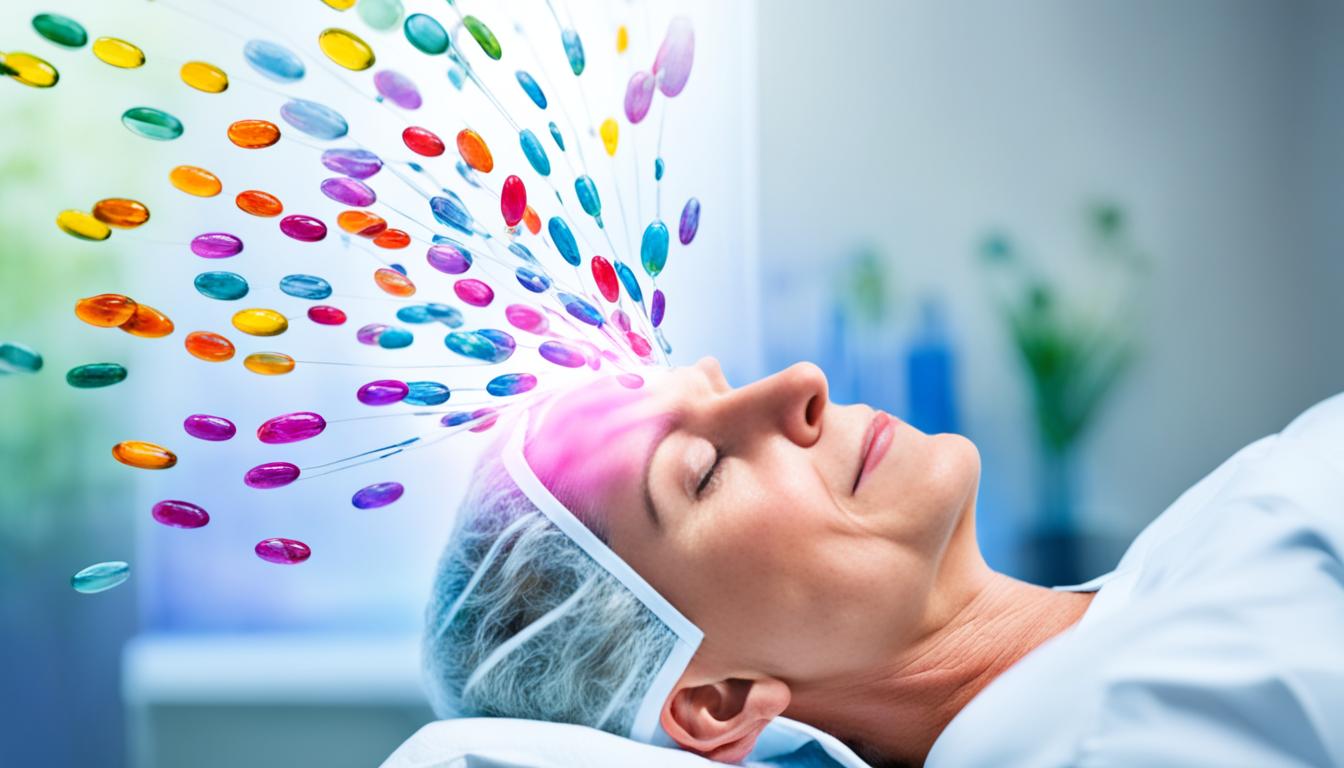Mental illnesses are complex diseases. They affect how a person thinks, feels, and acts. Common mental health issues include anxiety, depression, schizophrenia, and bipolar disorder. They can significantly affect a person’s life. The exact causes of these diseases are not fully understood. However, we know that certain genes can influence their development.
Diagnosing mental health disorders requires looking closely at symptoms, medical history, and tests. It’s important to correctly identify the disorder. This helps choose the best treatment plan.
Currently, treatments aim at helping with symptoms. These include medications, therapy, and mental health support. These methods can improve a person’s life. But they do not treat the main causes of the illnesses.
Yet, there’s new hope in stem cell therapy. Stem cells have the amazing ability to turn into various types of cells. They can heal damaged tissues. In the case of mental illness, stem cell therapy targets certain brain dysfunctions.
Studies are showing positive results, especially for illnesses like schizophrenia and autism. These breakthroughs could lead to new, more effective treatments. These treatments might address the root causes of these conditions.
Key Takeaways:
- Mental illnesses impact a person’s thoughts, feelings, and behaviors.
- Diagnosing mental health disorders involves a comprehensive evaluation.
- Current treatments focus on managing symptoms but do not address the root causes.
- Stem cell therapy shows promise in providing effective treatment for mental illnesses.
- Advancements in stem cell therapy offer new hope for conditions like schizophrenia and autism.
Treatment of Schizophrenia with Stem Cell Therapy
Schizophrenia is a severe mental disorder that impacts many people globally. Symptoms include delusions and hallucinations. This can make everyday life hard for those affected.
The cause of schizophrenia is not completely known. However, it’s thought that both genes and environment play a role. Treatments today focus on managing symptoms. This is done with medications and therapy, but these do not fix the root neurological issues.
Stem cell therapy is a new hope for those with schizophrenia. Stem cells can turn into many types of cells and repair damaged tissues.
Neural progenitor cells (NPCs) from embryonic stem cells have shown hope. They can turn into brain cells and help replace damaged ones. Studies suggest this might improve thinking and lessen symptoms of schizophrenia.
Another stem cell type, dopamine progenitor cells from iPSCs, is also promising. Dopamine is important for brain functions like reward. It’s linked to schizophrenia’s causes. These cells aim to fix dopamine levels and better the symptoms.
Studies on stem cells for schizophrenia are in their early phases. But, the early findings are encouraging. Research is ongoing to find the best ways to use these therapies.
Benefits of Stem Cell Therapy for Schizophrenia:
- Potential regeneration and replacement of damaged or dysfunctional brain cells
- Promotion of neural plasticity and restoration of normal brain functions
- Improvement in cognitive functions and reduction in symptoms
- Enhanced response to conventional treatments, such as medications and psychotherapy
- Possible reduction in the long-term reliance on antipsychotic medications
Stem cell therapy is poised to change how schizophrenia is treated. But, more studies and trials are needed. With more advancements in medicine, these therapies could bring new hope for those with this disorder.
Treatment of Autism with Stem Cell Therapy
Autism is a complex disorder affecting how people interact, communicate, and behave. While its specific causes are not clear, it’s known that genes and environment play a role. With no known cure, treatment looks to enhance social and communication abilities using different therapies.
Stem cell therapy stands out as a new hopeful treatment for autism. Stem cells can form into various cell types, such as nerve cells, and help heal the nervous system. In studies, scientists are looking at induced pluripotent stem cells (iPSCs) and mesenchymal stem cells (MSCs) to see if they can help with autism.
Research suggests stem cell therapy can improve how those with autism communicate and engage socially. Using stem cells from umbilical cords, studies have shown positive changes in those on the autism spectrum. This discovery brings hope for families dealing with autism.

